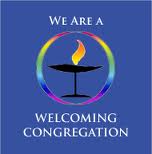Presenters
Index Page
Barker, Geraldine
Bodner, Mark
Burton, Laura
Castleberry, Kasey
Davis, Sam
Davis, Terry UU minister
Frost, Edward UU minister
Kibler, Myra
Nicholson & Brown
Sally Pamplin
Robison, Gerald
Seidman, Karl
Sheber, Larry
Sherod, Bob
Simmons, Antoine
Tremblay, Alexandra Immunologist
Waddell, Donna
Walker, James
West, Herb & Myrna
Woehr, Terry
Wood, Bruce
Other Sources
American Patriots Are Just Different
by Bruce Wood
This presentation was delivered to the congregation of Mountain Light UUC on 2014 July 06.
Synopsis: Because we live in earth's iconic democracy, the moral and practical obligations of American patriots set a higher bar than those for patriots of countries with other types of governments.
To start the conversation and provide context, these references are helpful guides:
1. Christian reference: What you do to the least of us, you do to me. Mathew 25:40.
2. Philosophical and Christian reference: The concept of representational responsibility and discipline, from Dietrich Bonhoeffer.
3. Political and Christian reference: If you don't want your tax dollars to help the poor, you can't say you want a nation based on Christian values, because you don't. Paraphrased from Jimmy Carter.
4. Political and moral reference: The moral test of government is how it treats those in the dawn of life, the children, those in the twilight of life, the aged, and those in the shadows of life, the sick, the needy, and the handicapped. Hubert Humphrey. (I add "the oppressed" to Humphrey's last group.)
If patriotism is a good thing, to the point that we consider it a morally admirable attitude, we have to allow the same moral admiration when we hear citizens of other countries express their patriotism for their countries. If an American citizen is honorable for expressing patriotism for the United States, then a Russian or Chinese citizen is equally honorable for expressing his patriotism. We Americans can claim no exclusive corner on the market for patriotism. So, what part of that patriotism market do we have a corner on? How is an American patriot different from any patriot of any other country?
Stephen Decatur offered a toast in which he expressed a commonly understood summary of patriotism, "Our country – In her intercourse with foreign nations may she always be in the right, and always successful, right or wrong." No reasonable person can question Decatur's noble, exemplary service to our country. But any patriotic citizen of any country could have said those words. So, what's the difference for Americans?
Even at that time, in the early 1800s, without criticizing Decatur personally, many Americans took issue with the way his toast was used to imply that American patriots are obligated to endorse any action, especially military action, which our government might take. John Quincy Adams wrote in a letter to John Adams, "I can never join with my voice in the toast which I see in the papers attributed to one of our gallant naval heroes. I cannot ask of heaven success, even for my country, in a cause where she should be in the wrong. ... My toast would be, may our country always be successful, but whether successful or otherwise, always right."
Adams was not the first person in history to say that responsible citizens are obligated to exercise judgment about issues of right and wrong concerning actions of their governments. The Hebrew prophets were good at that. But we Americans were the first to start and build a country on a philosophy in which the main idea is that taking personal responsibility for the actions of government is the price of freedom. We Americans take pride in what we do right, and we take responsibility for what we do wrong and fix it. We American patriots have a moral obligation for allegiance, but we don't have time for blind allegiance. We have a country to run.
Urging ratification of the new U.S. Constitution in 1788, Alexander Hamilton said, "Here, Sir, the people govern, here they act by their immediate representatives." We Americans have a government to run, and we are that government.
If we are to extol the virtues of patriotism and announce patriotism as a moral obligation, then we have to describe patriotic behavior in order to demonstrate patriotism ourselves and especially to teach patriotic behavior to our children.
We usually describe patriotism just enough to satisfy ourselves emotionally, but typically only in the most general terms, and usually with the strains of musical clichés in the mental background. And there is nothing wrong with that. I love pumping up national pride, chanting "USA, USA", during the Olympics, and I love those musical clichés, in large part precisely because they are clichés, that is, so familiar and nostalgic for all of us that they evoke collective affirmation and help bind us together as a nation.
We also share a fairly widespread aversion to accusing someone else of being unpatriotic, especially when we are mainly accusing someone of just disagreeing with us. That aversion is good. It's a helpful example of political correctness that really is correct and polite. We do better when we temper the harshness of our speech.
To keep our discourse more productively civil and respectful of our diversity, we are wise to avoid knee-jerk accusations of a lack of patriotism, especially since we have seen so many demagogues irresponsibly use such accusations to attack political opponents, from Joe McCarthy's red scare, to Nixon's enemies list, to the "You're either for us or against us…" hypocrisy and chauvinism underlying the advocacy for the invasion of Iraq in 2003.
Literally millions of Americans regret being manipulated by, or not standing up sooner or more strongly against, such accusations against other Americans of lacking patriotism. Dwight Eisenhower regretted tolerating Joe McCarthy for too long. Journalists, politicians, and ordinary voters regret falling for arguments that those who didn't support taking vengeance against Saddam Hussein for the 2001 attacks were not patriotic. And I regret not being included in Nixon's enemies list. What street cred that would have brought. There is value in adopting the norm of behavior that real, patriotic Americans respect and foster diversity of opinions and don't question another's patriotism just because we disagree.
But, if we are to describe patriotic behavior in order to exemplify it, advocate it, and pass it on, we must describe behavior that is not patriotic. As a relevant analogy, if confronting another's immoral behavior is, in itself, immoral, then we cannot effectively distinguish between moral and immoral behavior, and moral reasoning can never be practically applicable. By the same token, if identifying and confronting unpatriotic behavior is, in itself, unpatriotic, then our attempts to advance patriotism will rise no higher than vapid sentiment.
So, here are some examples:
Lying to the American people in order to deceive them into falling for a course of action that benefits the deceiver at the expense of the best interests of the people is clearly unpatriotic. On that point we all readily agree, especially when we accuse a political adversary of doing such. However, we are less likely to advance that criticism when it appears a political ally is doing it. Nevertheless, the big lie technique is inherently unpatriotic.
Here's why, and this is a crucial distinction for our country and for other democracies, compared to autocratic forms of government. Remember Hamilton, "Here, Sir, the people govern, here they act by their immediate representatives." If those immediate representatives conspire to deceive the people, then good governance, by the people, is not possible.
It matters less when a dictator lies to the people, because the judgment of the people doesn't figure much into the machinery of governance in a dictatorship, anyway.
By contrast to any autocracy, in the American democracy, to consistently deceive the people and thereby knowingly undermine the ability of the people to participate responsibly and effectively in governance, attacks and counters this nation's mission, cynically offends this nation's values, degrades the honor and quality of life of our citizens, and is, therefore, unpatriotic. Constant spin is un-American.
Another example: Extremism is unpatriotic in this American democracy. Historically and currently, our most familiar extremists adopt a religious pretense, so it is fair and fitting to confront them on religious terms, because those extremists consistently violate four of the Ten Commandments.
1. Idolatry - Idolatrous worship of tribal identity and tribal status. The extremists' idol, their false god, is their chauvinistic affiliation with others they perceive to be like them.
2. Coveting - Covetous and jealous lust for power over perceived rival tribes, using greed, racism, sexism, and hate-filled prejudice and discrimination of all kinds as weapons. They will even sacrifice their own quality of life, and the well-being of the nation, in order to gain advantage over perceived rival tribes.
A story can illustrate the ancient and universal dynamics of tribal extremism. A farmer plowed up a magic lamp. He rubbed the lamp. Out popped a grateful genie, who said, "Bless you for freeing me. I will grant you any wish you desire. But understand, whatever you wish for, your neighbor, who is a member of a rival tribe, will receive twice as much. If you wish for 10 horses, you will receive them. But your neighbor will receive 20. If you wish for great wealth, you will have it. But your neighbor will have twice as much." The farmer thought for a moment and said, "Blind me in one eye."
3. - Bearing false witness, in order to deceive and manipulate. Extremists prefer lying to telling the truth. The big lie is a practiced tactic. Their discourse is a fact free basket of bumper sticker slogans, repeated for other extremists as cultic chants. The joy of lying is a con man's ethic. To deceive with lies is a more egotistically satisfying demonstration of personal power over another than to convince with facts and objective analysis. The con man works hard to manipulate the gullible into buying something worthless, precisely because the product is worthless, rather than providing value to a customer. The con man and the extremist are proud of their ability to deceive. Skillful liars smugly dominate the opposition as victors over victims, motivated by lust for power.
4. - Taking the name of the Lord in vain, to the point of perverting religion as a false cover for idolatrous tribalism, covetous lust for power, and bearing false witness.
One difference between radicals on the left and radicals on the right is that radicals on the left don't use religion as a cover as often as radicals on the right, but a demagogue does not have to be religious to be a smug, self-righteous bigot. False, self-righteous religiosity notwithstanding … ideologically rigid, tribal extremism is un-American and unpatriotic. Here's why: tribal extremism perverts the democratic process, degrades majority rule into the tyranny of the mob, and threatens freedom, justice, and individual rights.
A last example: Those who attempt to restrict voting fear democracy. They fear that their tribe will lose power relative to rival tribes if those rival tribes are allowed to participate broadly in the democratic process. But a democracy cannot survive without that responsible participation by its citizens, as many as possible and as often as possible.
"Four" (violating those 4 Commandments) and "One eye blind" indicate what American patriots do not do. So, what do American patriots do? Not what do we profess to believe, but what do we do?
Some examples: American patriots tell the truth. If, through the democratic process, you can't convince people to support what you're trying to do by telling them the truth, then there is something wrong with what you are trying to convince people to do.
American patriots use reason to make decisions. "Where to draw the line?" is the question patriots dare to struggle to answer. We must beware the false choice between two extremes on a continuum. We don't live on a continuum. We live in a world made of a maelstrom of interdependent, systemic influences. American patriots boldly intervene in that maelstrom, knowing full well that our decisions will have unintended consequences, and taking full responsibility for correcting those consequences. Exercising rational judgment through critical thinking is our patriotic duty, a moral obligation for Americans.
Another example: The art of effective compromise is a patriotic requirement. It is the responsibility of all U.S. patriots and all citizens of any democracy.
- Compromise embodies the spirit of democracy because it requires us to respect others' opinions and value community wisdom.
- Compromise in a democracy must be a norm of behavior to enable progress, because the search for common ground is necessary to the search for higher ground.
- Effective compromise is a skill set, requiring practice. If you can't bear to compromise, you can't say you want a political process based on American democratic values, because you don't. (Thanks again, Mr. Carter, for your helpful syntax.)
Another example of what American patriots do: Running a democracy is inherently collaborative. Therefore, skillful collaboration is our patriotic duty. Collaborative planning and problem solving require us to subordinate personal ego to mission. As running our government is comparable to any huge, complex organization in pursuit of its mission, rational, values-based, collaborative planning and problem solving follows a sequence something like these 5 steps:
Step 1. Conduct fact-based assessments of current situations compared to desired situations.
Step 2. Objectively verify and analyze relevant facts in that assessment.
Step 3. Synthesize that analysis into alternative courses of action, which include:
- clear goals, - criteria for monitoring progress and evaluating success, - strategies for democratic collaboration, during both planning and implementation, - and alignment with national values.
Step 4. Compare and blend courses of action and render judgments according to the likelihood of success and the systemic implications for our other long-term goals, strategies, and overarching national interests.
Step 5. Envision the kind of world our decisions will leave for our children and what our children will learn from our behavior. That is, ask what lessons do the quality of our decisions and the integrity of our decision-making processes teach our children. The lessons we teach our children build the "patriot dream that sees beyond the years."
As evaluation and desire for constant improvement continue, so the sequence continues, in our personal lives, in our organizations, and in running our government. American patriots are responsible for ensuring that their elected representatives follow such a rational, collaborative process. And if those representatives can't or won't, we are responsible for replacing them with representatives who can and will.
American patriotism is different from nationalism. The American patriot exemplifies behavior that embodies, advances, and represents the American values of freedom, justice, peace, and prosperity, values that transcend specific, short-term material advantage in competition against other countries for power and wealth. The American patriot sees the United States in mission to promote those values, instead of in business to protect and expand territory or power as ends in themselves.
It is not our mission to be the richest nation in the world, although that would be nice. Nor is it our mission to be the most militarily powerful nation in the world, although the potential for effecting greater security that power might bring is reassuring. Our moral responsibility and our national mission are to be the most democratic, the most free, and the most just.
Unitarian Universalists can take pride in, and be affirmed by, the fact that the UU Seven Principles are among the most patriotic words in our public discourse. The UU Principles are not dogma or doctrine. They are ground rules for behavior in community. Hold them up now as guides for participation in the responsible governance of our country, and see their relevance.
1st Principle: The inherent worth and dignity of every person;
2nd Principle: Justice, equity and compassion in human relations;
3rd Principle: Acceptance of one another and encouragement to spiritual growth in our congregations;
4th Principle: A free and responsible search for truth and meaning;
5th Principle: The right of conscience and the use of the democratic process within our congregations and in society at large;
6th Principle: The goal of world community with peace, liberty, and justice for all;
7th Principle: Respect for the interdependent web of all existence of which we are a part.
Let us use our principles as spiritual guides as we use the celebration of our national independence to remind ourselves that we American patriots have a country to run.






